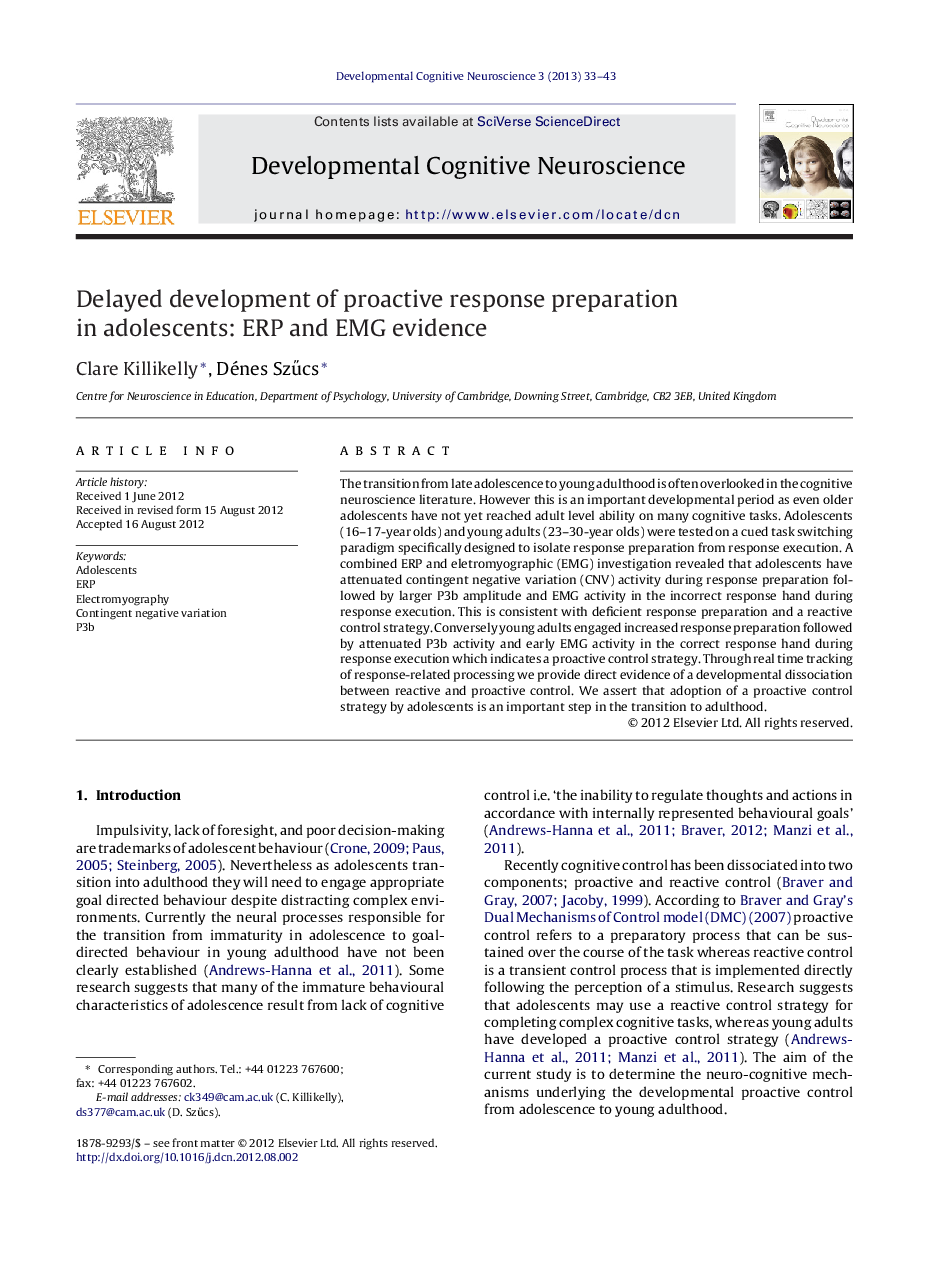| Article ID | Journal | Published Year | Pages | File Type |
|---|---|---|---|---|
| 4316670 | Developmental Cognitive Neuroscience | 2013 | 11 Pages |
The transition from late adolescence to young adulthood is often overlooked in the cognitive neuroscience literature. However this is an important developmental period as even older adolescents have not yet reached adult level ability on many cognitive tasks. Adolescents (16–17-year olds) and young adults (23–30-year olds) were tested on a cued task switching paradigm specifically designed to isolate response preparation from response execution. A combined ERP and eletromyographic (EMG) investigation revealed that adolescents have attenuated contingent negative variation (CNV) activity during response preparation followed by larger P3b amplitude and EMG activity in the incorrect response hand during response execution. This is consistent with deficient response preparation and a reactive control strategy. Conversely young adults engaged increased response preparation followed by attenuated P3b activity and early EMG activity in the correct response hand during response execution which indicates a proactive control strategy. Through real time tracking of response-related processing we provide direct evidence of a developmental dissociation between reactive and proactive control. We assert that adoption of a proactive control strategy by adolescents is an important step in the transition to adulthood.
* First examination of response-related processing in adolescents; combined ERP+EMG. * Deficient response preparation during adolescence indicated by attenuated CNV. * Inefficient response execution during adolescence (incorrect hand EMG). * Real time evidence that adolescents use reactive vs proactive control.
